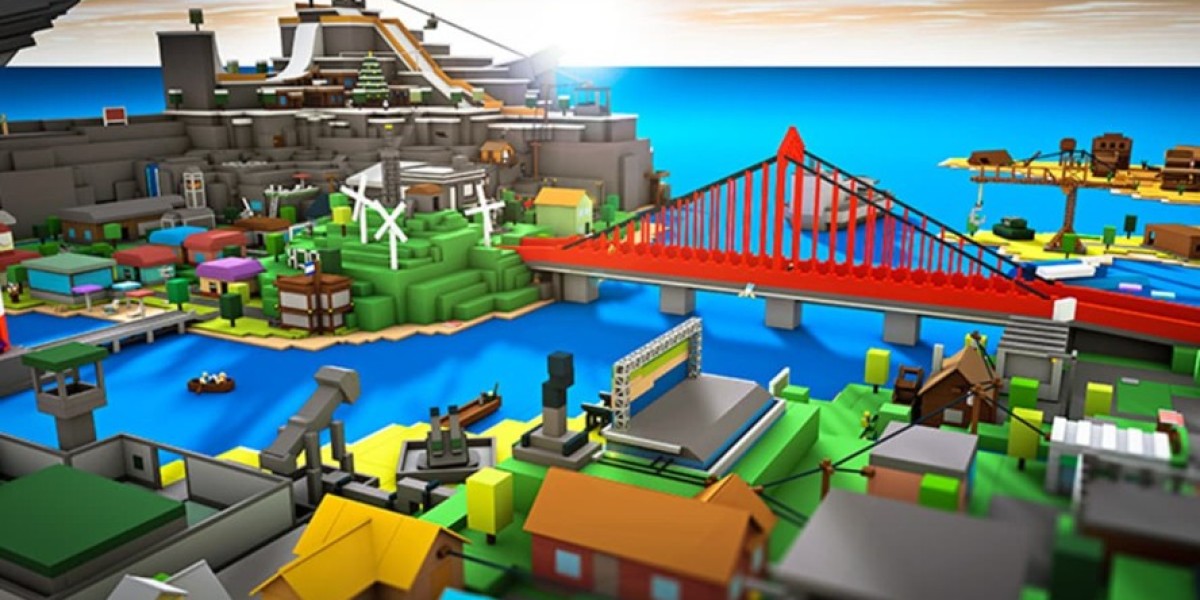In today’s tech-driven world, the demand for remote developers has surged. As businesses increasingly embrace the flexibility of remote work, the need for skilled developers who can work from anywhere is more prominent than ever. Whether you’re a startup, a growing company, or an established enterprise, hiring remote developers can offer a wealth of advantages, such as access to a global talent pool, cost savings, and a more flexible work environment.
However, when hiring remote developers, it’s crucial to ensure that the individuals you bring onto your team possess the necessary skills and qualities to succeed in a virtual work setting. Remote development projects require not only technical expertise but also an array of soft skills that ensure communication, collaboration, and productivity thrive despite geographical barriers.
In this article, we will explore the key skills you should look for when hiring remote developers for your project. These skills are vital for ensuring that your team works efficiently and effectively, delivering top-notch results for your business.
1. Technical Expertise and Proficiency
The most obvious and essential skill when hiring a remote developer is technical expertise. Depending on the nature of your project, the developer should be proficient in specific programming languages, frameworks, tools, and technologies.
Programming Languages: Make sure the developer is proficient in the programming languages your project requires. Whether it’s JavaScript, Python, Java, PHP, or Ruby, they should have a strong command of the language(s) that align with your project needs.
Development Frameworks: Developers should be familiar with relevant frameworks and libraries that streamline development, such as React.js, Angular, Vue.js for front-end, or Django, Flask, and Ruby on Rails for back-end development.
Version Control Systems: Knowledge of version control systems like Git is crucial for developers working remotely, as it ensures smooth collaboration among team members and keeps track of code changes effectively.
Familiarity with Databases: Whether it’s MySQL, PostgreSQL, MongoDB, or Firebase, a solid understanding of databases is necessary for developers working on data-driven projects.
Cloud Computing: Many remote projects leverage cloud platforms such as AWS, Google Cloud, or Microsoft Azure. Developers should have experience with cloud infrastructure and services, especially if your project involves scalable applications.
Security: Security is paramount in the digital world. Make sure the developer understands security best practices, such as data encryption, securing APIs, and managing user authentication and authorization.
Technical expertise is non-negotiable, but when hiring a remote developer, it’s essential that they also have experience working with remote development tools, such as cloud-based IDEs, online project management software, and continuous integration/continuous deployment (CI/CD) pipelines.
2. Strong Communication Skills
Effective communication is at the heart of remote work. Developers must be able to clearly articulate their ideas, ask questions when needed, and explain technical concepts to non-technical team members. As a remote developer, you’re relying on written communication most of the time, so the ability to communicate effectively through emails, instant messages, and project management tools is essential.
Clarity in Written Communication: Since remote teams often rely on written communication, developers should be able to clearly express thoughts, progress, and concerns in writing. This reduces misunderstandings and ensures that everyone is on the same page.
Responsiveness: While flexibility is one of the advantages of working remotely, developers should be responsive to communication. Delays in response times can affect the entire team’s workflow, especially when urgent issues arise.
Collaboration Tools: Developers should be proficient in using collaboration tools such as Slack, Microsoft Teams, or Zoom for virtual meetings. They should also be able to navigate project management platforms like Jira, Trello, or Asana to track tasks and collaborate with team members.
Active Listening: Communication is a two-way street. Developers must listen actively to understand the needs of the client, stakeholders, or team members and take action accordingly.
If you’re looking to hire remote developers, it’s essential that they excel in communication to foster smooth interactions with other team members and stakeholders. An effective communicator helps avoid delays and miscommunication, ensuring that the project stays on track.
3. Time Management and Self-Discipline
Remote developers often work without the close supervision of a physical office. This means they must be highly self-disciplined and skilled in managing their time effectively.
Time Zone Awareness: Working with a remote team means that team members may be spread across different time zones. Developers should be aware of time zone differences and be flexible in managing their work schedule, ensuring that they’re available for collaboration during core working hours.
Task Prioritization: A remote developer must be capable of managing multiple tasks at once while ensuring deadlines are met. They should be able to assess the urgency and importance of tasks and prioritize them accordingly.
Avoiding Distractions: When working from home or another remote location, distractions are inevitable. Developers should be able to create a focused, distraction-free work environment, ensuring that their productivity remains high.
Meeting Deadlines: Remote work requires developers to stay on top of deadlines. A good remote developer will set internal deadlines, track their progress, and deliver work on time.
Work-Life Balance: Although remote work can blur the boundaries between personal and professional life, developers must strike a balance to avoid burnout. They should be able to set healthy boundaries to ensure they remain productive and energized throughout the project.
4. Problem-Solving and Analytical Thinking
Remote developers often face challenges that require creative solutions. Whether it's debugging a complex issue or optimizing application performance, strong problem-solving skills are crucial for remote developers.
Troubleshooting: Developers should have the ability to identify issues and bugs quickly and figure out the best course of action to resolve them, even when faced with unfamiliar problems.
Analytical Thinking: Remote developers need to break down problems into smaller, manageable parts. By using their analytical thinking skills, they can dissect challenges and come up with efficient solutions.
Innovative Mindset: Good developers should be able to think outside the box. When working remotely, you may encounter roadblocks that require creative thinking to overcome.
5. Adaptability and Learning Agility
The tech industry is ever-evolving, and remote developers must be able to quickly adapt to new tools, technologies, and workflows. Developers should have a growth mindset, constantly looking for ways to improve their skills and stay updated with the latest industry trends.
Familiarity with Remote Tools: Developers should be comfortable with remote collaboration tools and any specialized tools required for your specific project.
Continuous Learning: Given the rapid pace of technological advancement, remote developers should demonstrate a commitment to continuous learning by attending online courses, reading relevant blogs, and experimenting with new technologies.
Flexibility with Changing Requirements: In remote work settings, project requirements or priorities may change frequently. Developers must be flexible and open to change, understanding that shifting deadlines, scope, or goals are part of the process.
6. Cultural Fit and Team Collaboration
While technical and soft skills are important, finding a developer who fits well within your company culture is equally essential. A remote developer will need to collaborate effectively with other team members, even if they are spread across different locations and cultures.
Collaboration with Distributed Teams: Remote developers need to work well with other team members, even if they are located across the globe. They should be capable of adjusting their work habits and communication styles to match the team dynamic.
Respect for Diversity: A successful remote developer will understand the value of diverse perspectives and be able to work with people from different cultural backgrounds, time zones, and working styles.
Ownership and Accountability: Remote developers should be self-starters who take ownership of their work. They should be able to manage their tasks independently while still being accountable to the rest of the team.
7. Experience with Agile Development Methodology
Many remote teams use Agile methodologies to organize their workflows. Agile development focuses on iterative development, continuous feedback, and rapid delivery, and requires developers who can work efficiently within this framework.
Scrum or Kanban: Familiarity with Agile frameworks like Scrum or Kanban is essential, as it allows remote developers to contribute effectively to iterative cycles of development.
Adaptability to Changes: Remote developers should be comfortable with the Agile principle of adapting to change and providing regular updates to clients or project managers.
8. Security Awareness
Remote developers are often responsible for handling sensitive data, making security a top priority. They must be aware of the latest security protocols and best practices.
Understanding of Secure Coding Practices: Developers should be able to write secure, clean code that minimizes the risk of vulnerabilities.
Data Protection: Since remote work often involves cloud-based applications, developers should understand data protection laws such as GDPR and CCPA and ensure that the application complies with these regulations.
Conclusion
When you decide to hire remote developer, it’s vital to consider a broad range of skills, both technical and non-technical, that will contribute to the success of your project. A remote developer’s ability to work independently, communicate effectively, adapt to new technologies, and collaborate with distributed teams is just as important as their technical expertise.
By looking for candidates who excel in communication, time management, problem-solving, and other essential soft skills, you can ensure that your remote development team functions smoothly and delivers high-quality results. Ultimately, the right remote developer can make all the difference in the success of your project, driving it forward with innovation, efficiency, and precision.



